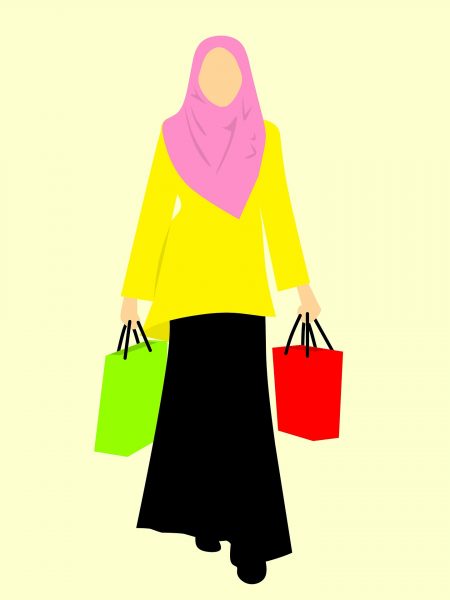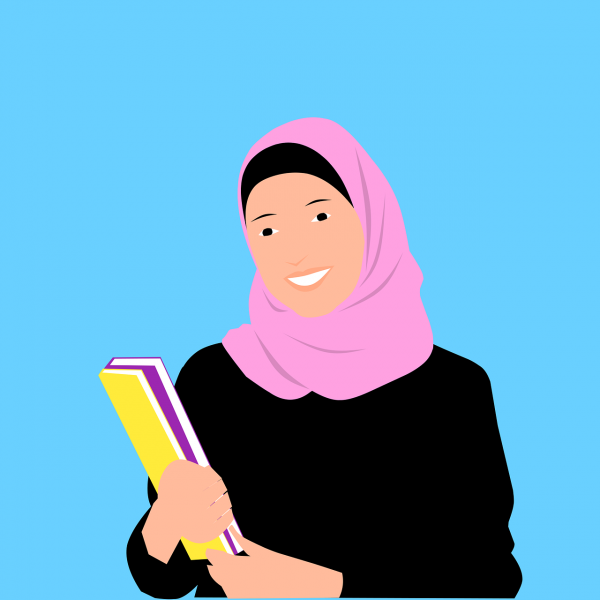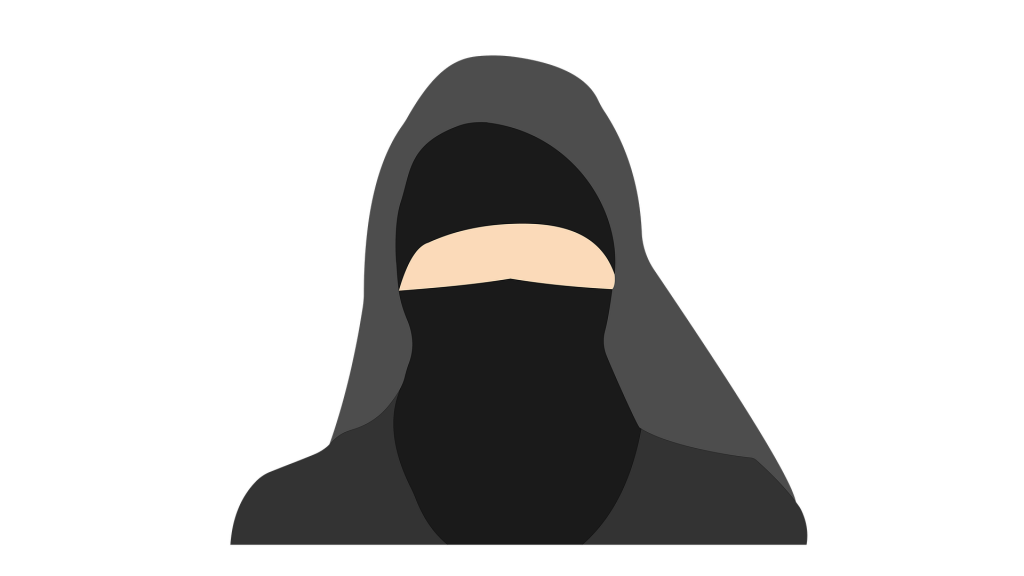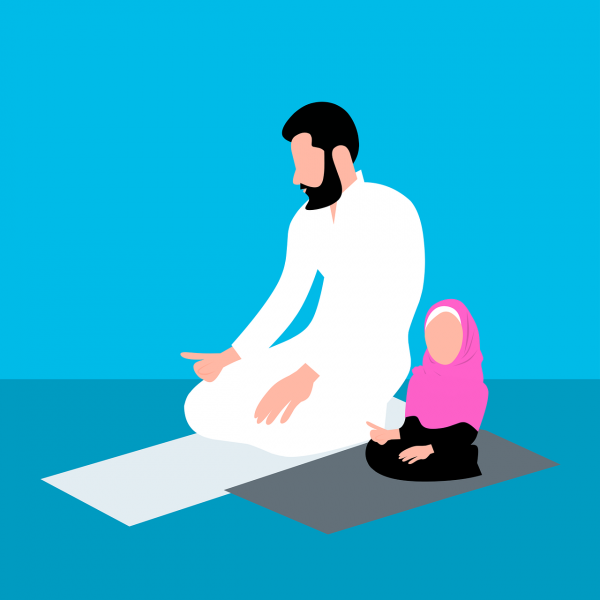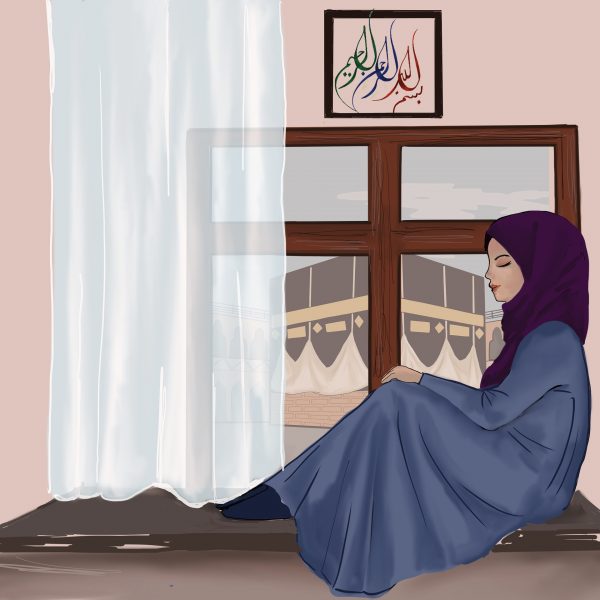In the Western world, a Muslim woman is stereotypically depicted as veiled and unvoiced. An oppressed individual to be pitied, ruled by a tyrannical husband or father, unable to move and act freely. However, this depiction is far from the truth. To label all Muslim women as identical, sharing the same norms and values, and character traits would be ignorant. Like any other group of individuals, Muslim women are unique, come in all shapes and sizes, hold different opinions, and passions and are from different backgrounds.
Muslim women are often spoken for by individuals who have no true understanding of how it feels to be one. The narrative that is churned out within the media, and in TV and film is usually of a Muslim woman in need of saving, of someone who is unhappy with their choice of attire, and lifestyle and who wants to be rid of the archaic traditions forced on them. However, the reality is, Muslim women play a huge role within today’s society, and have historically always done so for centuries. Professionally, they are present within all industries, ranging from technology to healthcare. They are our teachers, doctors, mothers, and nurses. They are our writers, our poets, our artists and architects.
You do not need to be within a specific job role, be married, or a mother, to be an empowered Muslim woman. To be a believing woman, adhering to her faith, and sticking to the guidelines which Allah has ordained for you, is empowerment as its peak. If we followed the true guidelines on how to treat a woman within Islam, then those who are suffering would be liberated.
Unfortunately, although Islam raises the status of women, cultural traditions play a huge part in how women are treated. Often cultural practices are labelled as religious practice, resulting in negative stereotypes being associated with Islam, when in fact these traditions are often against the teachings of Islam.
Here, we reclaim the narrative of Muslim women, and dismantle the negative stereotypes that are associated with being one, by tackling 4 myths about Muslim women
- Muslim women do not have any rights
For centuries women were treated like commodities. Women had no rights and were unable to inherit or own assets. Female children were considered a misfortune and burden, and hence buried alive, and women were unable to contribute to society.
However, the Prophet (saw) advocated for the rights of women. He (saw) and his beloved wife Khadija (ra) embodied this. Khadijah (ra) was a successful businesswoman, with the Prophet (saw) in her employment, and went on to be the first woman to accept Islam. She also initiated the proposal of marriage herself.
In Islam, both men and women are equals in the sight of God. The Prophet (saw) described “Women are the twin halves of men.” (ad-Darimi). Women were given divinely ordained rights centuries ago, that their Western counterparts lacked until as recently as the past hundred years. They can sell and own property, have her own assets, and take part in political and social affairs.
“And wish not for the things in which Allah has made some of you excel the others. For men there is reward for what they have earned, (and likewise) for women there is reward for what they have earned, and ask Allah of His Bounty. Surely, Allah is Ever All-Knower of everything.” (Quran: 4:32)
In Islam, both genders have divinely-ordained responsibilities and duties to fulfil. Women will be judged and held responsible for their actions, just as men will be.
“The male believers and the female believers are responsible for each other. They enjoin the good and forbid the evil, they observe prayers and give charitable alms and obey God and his Prophet.” (Qur’an, 9:71)
Islam not only forbade the killing of young female infants, which was previously common in Arabia, but rather promised Paradise for fathers who honoured their daughters.
The Prophet Muhammad (saw) said, “Whoever has a daughter and he does not bury her alive, nor humiliate her, nor prefer his sons over her, he will enter Paradise due to her.” (Abu Dawud)
This was revolutionary in its time. Such is the God-given status and virtue of women, that He enjoined kind treatment to mothers, even more so than that of fathers:
A man asked the Messenger of Allah (saw) “Who is most deserving of my good company?” The Prophet said, “Your mother.” The man asked, “Then who?” The Prophet said “Your mother.” The man asked again, “Then who?” The Prophet said, “Your mother.” The man asked again, “Then who?” The Prophet said, “Your father.” (Bukhari)
- Muslim women can’t be educated, or play a role in society
There is a misconception that Muslim women sole function are domestic duties and are unable to educate themselves or work. However, this is against the teachings of Islam. Within the religion, Muslim women are encouraged to educate themselves, in fact it is compulsory for all believers.
The Prophet Muhammad (saw) said, “Seeking knowledge is compulsory for every Muslim.” (at-Tirmidhi)
Although it is encouraged for believing women to educate themselves on the teachings of the Quran and Sunnah, it is also permissible and encouraged for women to educate themselves in other beneficial subjects. Throughout history, and even today, Muslim women are in varied careers. In fact, one of the greatest scholars amongst the Companions of the Prophet and one of the most prolific narrators was the Prophet’s (saw) own wife, Aisha (ra). She narrated 2210 hadiths and lived for 44 years after the Prophet’s death.
Throughout Islamic history, Muslim women have reached the ranks of scholars, often teaching men, even counting amongst them the caliphs of their time. A biographical dictionary of female scholars, al-Wafā’ bi asmā’ al-Nisā’, by Sheikh Akram Nadwi was recently published in 43 volumes, detailing the biographies of a staggering 10,000 female hadith scholars.
Outside the realms of scholarship, women played a part in the affairs of society. Nusaybah bint Ka’b (ra) fought alongside the Prophet (saw) at Uhud, and was one of a few who remained steadfast in vociferously defending the Prophet (saw) despite the majority fleeing the battlefield and despite many injuries being inflicted upon her.
Similarly, Al Shifa bint Abdillah was one of the most intelligent and notable women at the time of the Prophet (saw). Later Umar ibn al-Khattab (ar) when he was Caliph, gave her view precedence over others and made her responsible for the marketplace.
- Muslim women are oppressed because they cover
There is a widespread view that Muslim women are oppressed, and are forced to cover. One of the most common questions levelled at Muslim women are regarding the hijab, why is it worn and whether it is forced upon us. The inquisitiveness is welcomed, as a conversation can then be held to clear any misconceptions.
The Western ideology perceives an oppressed woman as those who are covered, and those who are undressed as liberated. It has become the norm for the body of a woman to be used to promote and entice consumers. We are bombarded with sexualised images in all mediums through billboards and social media.
However, within Islam, the body of both men and women are protected and valued. Both genders are required to adhere to their respective dress codes. Muslim women cover simply because it is ordained by their Creator, and do it solely to please Him.
“Tell the believing women to draw their outer garments around them.” (Qur’an 33:59)
Covering benefits a Muslim woman as it provides her with a sense of self, and security. When a Muslim woman covers, it is beyond merely just a dress code, but acts as a barrier between men and women to protect and empower her.
- Muslim women are forced to marry and unable to divorce
Muslim women can choose their own spouse and reject or accept marriage proposals. Both the bride and the groom must consent to the marriage, out of their own free will.
In marriages historically, women were seldom asked for their permission, and were unable to divorce. However, in Islam divorce is permissible, and can be initiated by the woman.
Once a woman came to the Prophet (saw) and complained:
“My father has forced me to marry my cousin in order to raise his own status.”
The Prophet (PBUH) replied: “You are free to dissolve your marriage and chose whomever you wished to marry.”
She replied: “I accept my father’s choice, but my aim was to let the women know that fathers have no right to interfere in the marriage.” (Ibn Majah)
When women marry they stipulate a dowry of their choice – with no limit on what she may ask for in a material sense, as a protection and gift for the woman. She is also expected to retain her own name after marriage and her assets remain solely hers thereafter.
Reclaiming the narrative
On International Women’s Day, we celebrate and commemorate all the social, economical, spiritual, cultural, political achievements of women. We celebrate all the women in our lives, our mothers, wives, sisters, daughters, friends, colleagues and peers.
We celebrate the women who are in the limelight making history, and those within their own homes home schooling their children. We celebrate the women taking care of their parents, the elderly, and the helpless. Women who have made it out of bed, and for those who haven’t. We celebrate them all, as they are all important, cherished and unique.
We uplift and empower those who need it. Women who on this special day, need to be reminded that they too as women matter. Although they maybe in the shadows, unheard, silenced and isolated, they deserve to be cared for, and given a voice. That includes the single mothers, trying to put on a brave face for their little ones, silencing the ache in their heart and preparing dinner with what little they have left.
At HHUGS, we worked hard and strive to empower the women who need it most. We provide these women with counselling sessions to help them heal, key workers to support and listen to them, virtual coffee mornings to give them a safe space to connect. We provide women with vocational and educational support, and business loans to help equip them with skills to provide them and their families a better life.
Be a part of their journey, and be the stranger who helps uplift and empower these women.
